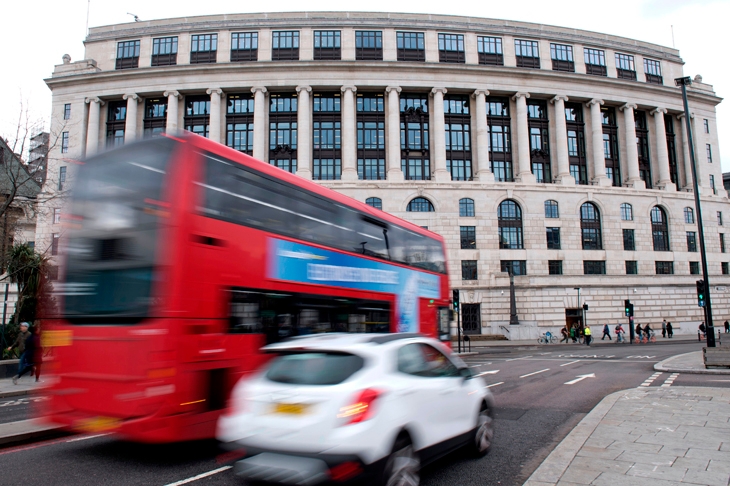Unilever’s abandonment of plans to scrap its Anglo-Dutch corporate structure and leave London is a huge embarrassment for chief executive Paul Polman, whose days in post must surely be numbered. More significantly, it’s a rare demonstration of the power of UK institutional investors (the likes of Aviva, Legal & General, M&G and Schroders) to exercise collective influence in errant boardrooms.
The institutions were unpersuaded that the proposed new Dutch-based structure would generate greater value for them from the Persil-to-Marmite conglomerate — and many disliked the idea that Unilever would drop out of the FTSE 100 index, obliging tracker funds to sell their holdings. Polman’s plan was painted by the media as a response to Brexit, but in fact had much more to do with last year’s $143 billion bid approach from the US consumer giant Kraft Heinz — which was swiftly withdrawn, but which nevertheless pushed Polman into short-term shareholder-pleasing measures, including a share buyback and a dividend increase, that he later said he regretted.
The overall impression is that Unilever’s top management regards shareholders who demand better returns as a nuisance, and thought they might be easier ignored from a Rotterdam stronghold that would enjoy continental-style protections against take-over. But red-blooded predators must now be eyeing Unilever and thinking: here’s a bundle of valuable brands under a lame-duck leadership with incompetent advisers and damaged relationships with key investors. What could be riper for a hostile bid?
Unhappy motoring
I’m trying not to become a bore about the travails of the UK auto industry. But last week’s Aston Martin flotation turned into a flop, and here’s a pair of this week’s headlines: ‘Jaguar Land Rover plans two-week shutdown due to slump in demand’ (Evening Standard) and ‘Brussels approves Slovakia’s investment in JLR plant’ (FT). The first refers to weak export orders from China afflicting JLR’s Solihull factory; the second to state funding for a new plant at Nitra in Slovakia that will produce 150,000 cars a year and create 3,000 jobs — but which JLR had otherwise planned to build in Mexico, not Solihull.
Digital tax challenge
Was Philip Hammond merely grandstanding to his party conference when he spoke of the UK ‘going it alone’ without international agreement to impose a ‘digital services tax’ on giants such as Amazon that laugh in the face of Her Majesty’s tax collectors while hastening the demise of terrestrial retailers? The practicalities of such a tax would be fraught with pitfalls, even if the rationale seems increasingly compelling.
Amazon increased sales through its ‘UK Services’ arm last year from £1.5 billion to £2 billion, but its tax bill fell from £7.4 million to £4.6 million, of which it actually paid only £1.7 million; meanwhile total Amazon sales in the UK, including those booked offshore, approached £9 billion. Facebook may be a less direct threat to bricks-and-mortar commerce, but its UK tax record is just as risible: £15.8 million (reduced to £7.4 million after tax credits) on sales of £1.3 billion last year.
No wonder politicians in many countries cry that something must be done. Brussels has proposed a 3 per cent sales tax on larger online sellers, but has met objections from its own members that benefit from the status quo, namely Ireland and Luxembourg. India already has a levy and Australia is eager to introduce one. But the Trump administration has signalled through Treasury secretary Steve Mnuchin that it will oppose any attempts to penalise US digital giants, raising the possibility of trade retaliation. And the cost of such levies would likely pass straight to consumers anyway.
What would really cut this knot is a radical approach from the opposite direction: a slashing of UK corporate taxes generally, and in particular of business rates for high- street retailers. There’s a pre-Brexit morale booster for your Budget this month, Chancellor, if you’re feeling brave enough.
RBS name game
RBS chairman Sir Howard Davies says his bank is considering a name change to signify that it has moved on from the recovery phase after its 2008 collapse. But this column has long argued that the best way to recoup value for taxpayers who still own 71 per cent of RBS would be more surgical than a mere tinkering with the logotype: it would be to demerge the NatWest, Ulster Bank and Coutts subsidiaries, whose brands are relatively untainted, leaving a scaled-back Scottish retail bank bearing the original initials.
When I debated my plan with some of Davies’s senior colleagues, however, they were adamant that the IT challenge of separating one part of a giant bank from another is all but insuperable — as they found when they tried to hive off 300 ‘Williams & Glyn’ branches, and as was confirmed by the fiasco of TSB’s move from the platforms of former owner Lloyds to those of its new owner, Banco Sabadell. Dividing the capital would be equally problematical, so I gather RBS isn’t going under the knife any time soon.
Next choice, perhaps, would be to rename the whole group NatWest, with a Scottish rump known henceforth as ‘the Royal’ (Davies says that’s what loyal Scots call it anyway). Not very imaginative, though better that following the trend for new names that mean nothing at all — like Royal Mail’s much-mocked but brief rebadging as Consignia, which prompted me to suggest ‘Compostia’ as an earthier alternative.
But I digress; and Davies can do better. For example, why not commemorate the chancellor who authorised the RBS bailout and whose name, even when the 2008 crisis is long forgotten, might actually attract business. Darling’s Bank has a warm ring, does it not? Other suggestions welcome, to martin@spectator.co.uk.







Comments